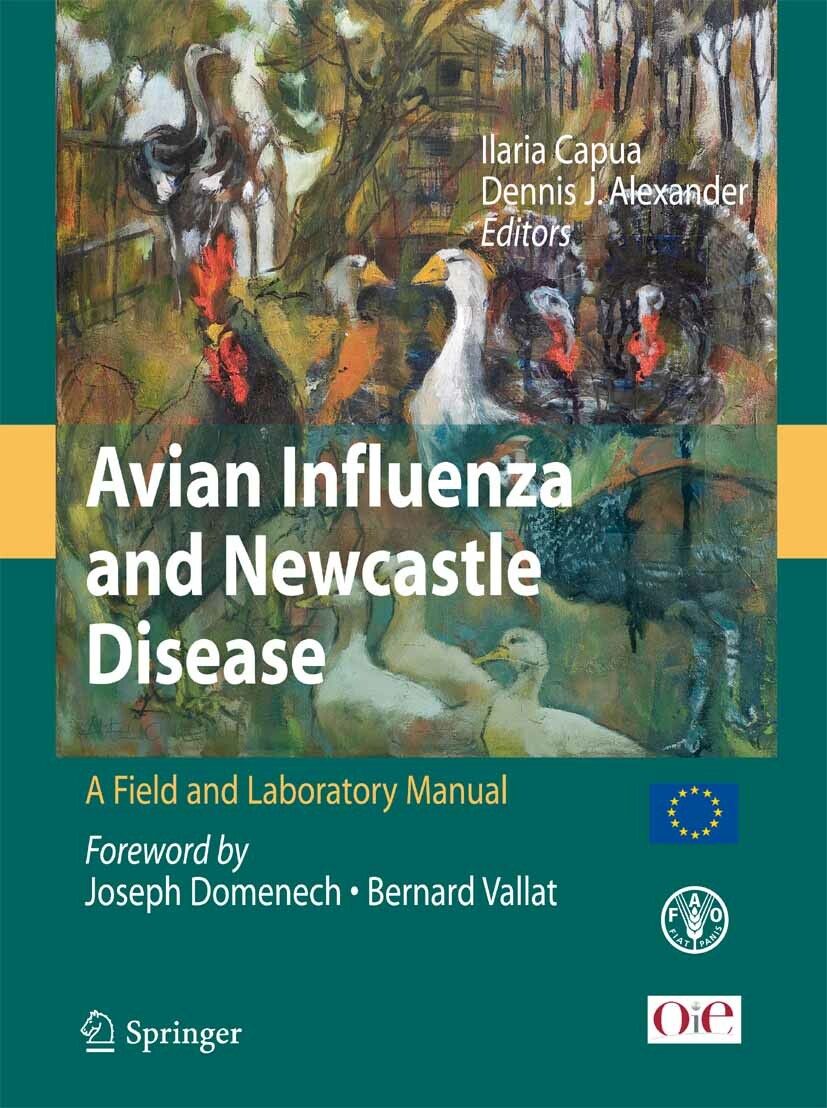Avian Influenza and Newcastle Disease
A Field and Laboratory Manual
| Auflage | 1. Auflage, 2009 |
| Verlag | Springer-Verlag |
| ISBN | 9788847008267 |
Produktbeschreibung
Avian Influenza (AI) and Newcastle Disease (ND) are two devastating diseases of poultry, which cause losses to the poultry industry and influence the liveability of rural communities worldwide. Following the H5N1 epidemic they appear to be endemic at least in Asia, Eastern Europe, The Middle East and Africa. Particularly in case of AI outbreaks it is essential that infection is diagnosed promptly and that isolates are made available to the international scientific community.
Currently, several organisations including OIE, FAO and the EC have organised training courses in affected areas. However, often these courses do not cover all aspects of AI/ND diagnosis but only certain aspects. This results in fragmented areas of knowledge and in the application of different diagnostic protocols in different parts of the world.
The objective of this book is to provide a comprehensive approach to AI diagnosis ranging from the clinical elements that should trigger a suspicion in the field, to the post mortem technique, collection of samples, processing/ shipment of specimens, virological, serological and molecular diagnosis and guidelines for notification.
Ilaria Capua is 'Revolutionary Mind' for 2008.
This acknowledgement was granted by 'Seed Magazine'. The American magazine of science and technology each year selects 5 leaders in the international scientific community who have most influenced our opinions on the world, the mind and the universe.
In 2006 virologist Ilaria Capua was studying samples of avian influenza from Africa. The World Health Organization asked Capua to deposit the genetic sequence of one of her samples into a database to which only a select few laboratories had access. She balked. 'I said, 'Wait a minute, we're talking about a serious potential threat to human health. We know very little about how this virus is moving. Not enough scientists have had the opportunity to look at this virus.'' So Capua opted to put the sequence in GenBank, an open-access database, where it was downloaded 1,000 times in a single week. Capua's small act of rebellion was just the spark for a much larger challenge to the system. She started speaking out at meetings, urging her colleagues to stop putting their bird flu data in private databases. She joined forces with Peter Bogner, a strategic consultant, and a number of other virologists to establish the Global Initiative on Sharing Avian Influenza Data (GISAID), a consortium that facilitates collaboration among researchers and requires members to make their work on the virus publicly accessible. Capua hopes the work she's done to open up bird flu research can serve as an example to scientists studying other infectious diseases. Jean-Claude Bradley, a chemist at Drexel University who coined the phrase 'open-notebook science,' agrees. 'That's where open science can really have an effect,' Bradley says, 'in research on disease processes. We could really use more people who are doing what Capua's doing. I think it makes for better science.'
